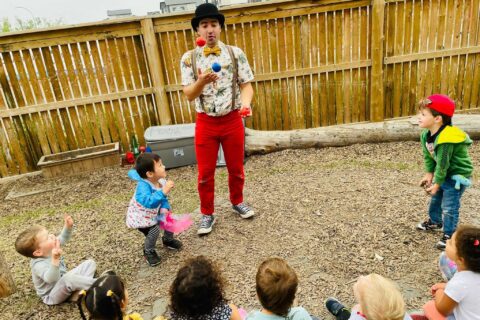How Early Childhood Education Pays Off in the Long Run

From the moment a baby is born, it is constantly taking in and processing information. The first five years of a child’s life are particularly important for their cognitive, emotional, and social development.
At all hours of the day, children are picking up on cues and learning to interact with the vast and exciting world that surrounds them. Dynamic interaction with this expansive world is constantly shaping its development.
For these reasons, enrolling a child in an early child care education program has proven to be one of the best moves a parent can make to ensure long-term success for their kin.
These programs, however, don’t come without cost. While early childhood education programs are an expense, research has shown that the investment pays off heavily in the long run. Here’s how:
Brighter Futures
According to a 35-year study conducted by Nobel Laureate James Heckman and his team of researchers at the University of Chicago and the University of Southern California, early childhood education results in healthier adults who are less likely to commit crimes, and additionally are more likely earn higher incomes – especially for men.
These findings were brought to light when Heckman analyzed the facts and figures collected by his team that studied the effects of early childhood education on the lives of low-income African-American children in the 1970s. Participants who benefitted were enrolled in a high-quality preschool program, but the study also followed children who were enrolled in a low-quality program and others who didn’t attend preschool at all.
Generational Benefits
While the children enrolled are the obvious beneficiaries of early childhood education, their parents also receive an advantage. When parents have time to focus on their careers, they position themselves to work more dedicated hours, making them more likely to be ambitious in climbing their corporate ladders – aiding both them and their children in the long run.
Promising Rois
As previously stated, early childhood education should be seen as an investment for the future of a child. Heckman’s study found concrete results to denote that at-risk children can immensely benefit from it, yielding a 13 percent return on investment each year.
Due to the study’s findings, an estimate of the cost-benefit of enrolling at-risk children in early childhood education programs could be calculated. The calculation was based on the reduced taxpayer costs for crimes, social assistance, and healthcare, and it amounted to $6.30 for each dollar spent.
How Kepler Academy Sets Ourselves Apart
Not all childhood education programs are created equal.
One of the key reasons that the participants in Heckman’s study experienced such a positive impact from their early childhood education is because of its unbeatable quality. The top-tier curriculum that the children took part in stood out as superior to others at the time.
At Kepler Academy, our ambitious approach for childhood education sets us apart from other child care and daycare centres in Edmonton. It is our mission to ensure that all Kepler children are unafraid to reach for the stars. From our enriched curriculum taught by passionate educators to our balanced and nutritional snacks and lunches, Kepler is committed to providing children with nothing but the best opportunities for growth and exploratory learning. Drop us a line today to learn more about how Kepler fosters strong, independent, and curious minds, each and every day!


